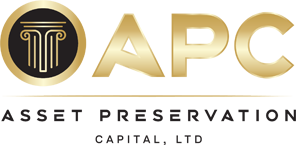Not only can these insights save you a boatload of stress later in life, but they can help ensure that you have a happy retirement.
Planning for retirement is tricky. There can be a lot of uncertainty involved. You try to make good decisions with the information you have, save what you think you’ll need and hope for the best. But often, you don’t truly know if you’ve made the right calls until you’re actually retired.
Many Americans are feeling uncertain these days, according to the Employee Benefit Research Institute’s 2023 Retirement Confidence Survey. Only 18% of workers and 27% of retirees feel “very confident” they will have enough money to live comfortably throughout retirement.
In my years working with financial advisers and talking to those nearing retirement, I’ve learned a lot about what works and what doesn’t. Through these experiences, I’ve gathered insights that many find out too late.
As you prepare for retirement, here are the five crucial things I’ve learned that people wish they’d known sooner.
1. The value of good, trustworthy financial advice.
Selecting a financial adviser is a pivotal decision, yet many choose based on a friend’s tip or stick with their workplace’s 401(k) representative. These advisers, while knowledgeable, may prioritize their company’s interests over your financial health and offer limited advice confined to your employer’s plan.
The wiser course? Hire an independent, fee-only financial adviser who offers comprehensive services, including critical tax and cash flow planning. Plus, this person has no ties to specific funds or investment products and will offer strategies aligned with your unique goals, potentially saving you significant amounts in unnecessary fees.
For example, using low-cost, tax-efficient ETFs could keep over $100,000 in your pocket instead of lost to fees from pricier investments recommended by commission-based brokerage advisers. Wealthramp is a service I created specifically for consumers looking for fee-only advice.
A sound adviser relationship keeps you invested even when markets falter and, overall, helps guide you to make smarter money decisions. This is not just about immediate savings — it’s also about future cash flow and tax planning that fortifies your retirement security.
2. You don’t need a big income to start saving and investing.
A common roadblock many face is the belief that they don’t earn enough to start investing for retirement, or that a small amount doesn’t matter. This misconception can lead to missed opportunities that compound over time, just like the investments we forgo.
The truth is, waiting to save because you anticipate higher earnings in the future is a gamble on time you can’t afford. The power of compounding interest means that even small, consistent investments can snowball into significant sums over time. This is a certainty you can count on. For example, investing just $50 a month at a 7% annual return will grow to over $23,000 in 20 years. Now, imagine if you increase that amount as your income grows.
Furthermore, if you invest in a tax-advantaged account like a Roth IRA, which allows tax-free withdrawals in retirement, or a traditional IRA and 401(k), which invest pre-tax dollars, you’re effectively using tax savings to boost your retirement fund. In other words, money that would have gone to taxes is now working for you.
Let’s not forget the potential boost from employer matching in your 401(k), which is essentially free money. Even if your employer matches only 50% of your contributions up to a certain percentage of your salary, this can significantly increase the growth of your retirement savings.
3. How much catch-up contributions can be a game-changer.
Reaching your 50s can come with a jarring realization: Retirement is closer than you think, and your savings may not be on track. It’s at this stage that catch-up contributions can become a game-changer, potentially making the difference between an uncertain financial future and a comfortable retirement.
In 2023, the IRS permits those 50 and older to contribute an additional $1,000 to an IRA on top of the standard $6,500 limit, a modest increase that can have a substantial impact over time.
For self-employed individuals over 50 with a SIMPLE IRA, there’s an even greater opportunity: You can contribute an extra $3,500 above the $15,500 limit. As for 401(k) contributions, you can not only max out at $22,500 but also add an additional $7,500, allowing for a total of $30,000 per year in pre-tax savings.
Despite these incentives, according to Vanguard’s How America Saves report, only 16% of retirement savers make these additional contributions. If you start making the maximum catch-up contributions at age 50 and earn a 7% annual return, you could increase your retirement savings by about $97,000 by the time you turn 65.
For those with higher incomes — over $145,000 in 2024 — the advantage shifts in 2024 to Roth IRA catch-up contributions. While Roth contributions don’t offer an immediate tax break, they do promise tax-free growth, which can be significantly advantageous for those in higher tax brackets.
4. There really is a right amount of insurance coverage.
One of the less talked about aspects of financial planning is the balance of having just the right amount of insurance — not too much and not too little — at each stage of your life.
Throughout your working years, you could be paying for insurance that’s unnecessary, and these excess premiums can amount to a substantial sum over time. How can you tell if your coverage levels are appropriate? Unfortunately, you’re unlikely to get an unbiased evaluation from someone who profits from selling you more insurance.
As retirement nears, you’ll likely be bombarded with pitches for life insurance and annuities. The biggest mistake you can make is letting the fear of insufficient retirement savings drive a decision to buy an annuity that’s complex and truly not appropriate. Insurance offerings are not investments. They are dense legal contracts where the critical information buried in the fine print is easily overlooked or misunderstood due to the complexity.
To navigate the insurance landscape, seek the counsel of an independent fee-only financial adviser (who doesn’t sell insurance) to provide a comprehensive review of your family’s insurance needs. They can help you determine the precise level of protection you need, without the conflict of interest inherent in commission-based selling.
5. The importance of having your affairs in order at all ages.
Estate planning is crucial for everyone, not just the wealthy, and it’s best handled sooner rather than later. On some level, you may know this, but somehow people tend to ignore the task. These documents are not just for distributing your assets; they are essential tools for decision-making in times when you might not be able to express your wishes. Whether it’s a health care proxy, power of attorney or living will, these legal instruments are the only way your loved ones can possibly know your desires and can respect your wishes regarding life-or-death medical decisions and end-of-life care.
Furthermore, if you’re planning to leave money or property to loved ones, consider the benefits of doing so while you’re still alive. This can not only provide you with the joy of seeing them use and appreciate your gift but also can be a wise move for tax purposes.
Without these documents, you leave the distribution of your estate and the decision-making at critical moments to the state’s default laws. This abdication of control can lead to outcomes you never intended. Ultimately, having your affairs in order is a straightforward act of responsibility and kindness to your family.
Retirement planning is a multifaceted journey that demands attention to detail, a proactive mindset and a willingness to seek and follow expert advice. Take these lessons to heart, and you’ll be better equipped to navigate the road to retirement with confidence.
https://www.kiplinger.com/retirement/what-i-wish-id-known-before-i-retired

